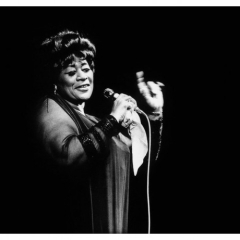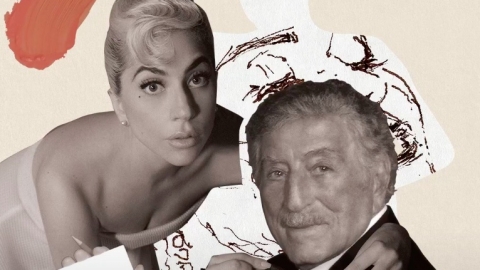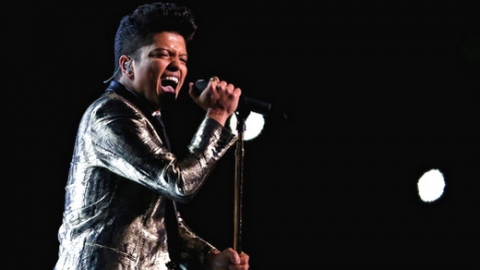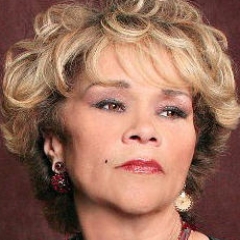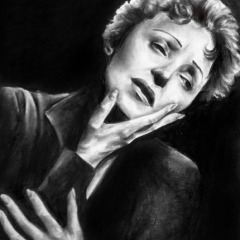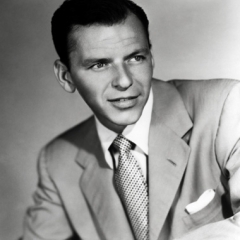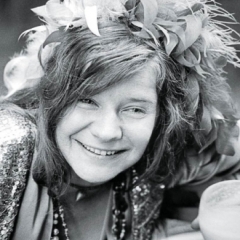The Man I Love (tradução)
Ella Fitzgerald
Mach the Knife: Ella in Berlin
O homem que amo
Um dia ele vai vir, o homem que eu amo
E ele vai ser grande e forte, o homem que eu amo
E quando ele vem no meu caminho
eu vou fazer o meu melhor para fazê-lo ficar
Ele vai olhar para mim e sorrir
eu vou entender
E em pouco tempo ele vai pegar minha mão
E embora pareça absurdo
Eu sei que nós dois não vou dizer uma palavra
Talvez eu encontrá-lo domingo
Talvez segunda-feira, talvez não
Ainda assim eu tenho certeza de encontrá-lo um dia
Talvez terça-feira vai ser meu dia de boas notícias
Ele vai construir uma pequena casa, significava apenas para dois
A partir de que nós nunca vamos vagar; Quem iria, você iria?
E assim tudo o mais acima eu estou esperando o homem que eu amo
"The Man I Love" teve a distinção ímpar de se tornar um padrão reconhecido, apesar dela ter sido (1)
expulso do musical para o qual havia sido escrito
("Lady, Be Good!" Em 1924), (2) cantado em um show que caiu na estrada (a 1927 "Strike Up the Ban
."), (3) adicionados e, em seguida, cortado de um musical terceiro
("Rosalie"); (4) rejeitada quando "Strike Up the Band" foi sucesso revisto em 1929. A razão para
a última situação foi irônico: a canção tornou-se muito bem
conhecido!
The Man I Love
Someday he'll come along, the man I love
And he'll be big and strong, the man I love
And when he comes my way
I'll do my best to make him stay
He'll look at me and smile,
I'll understand
And in a little while he'll take my hand
And though it seems absurd
I know we both won't say a word
Maybe I shall meet him Sunday
Maybe Monday, maybe not
Still I'm sure to meet him one day
Maybe Tuesday will be my good news day
He'll build a little home, just meant for two
From which we'll never roam; Who would, would you?
And so all else above I'm waiting for the man I love
"The Man I Love" had the odd distinction of becoming a recognized standard despite its having been (1)
thrown out of the musical for which it had been written
("Lady, Be Good!" in 1924); (2) sung in a show that flopped on the road (the 1927 "Strike Up the
Band"); (3) added to and then cut from a third musical
("Rosalie"); (4) rejected when "Strike Up the Band" was successfully revised in 1929. The reason for
the last situation was ironic: the song had become too well
known!
Encontrou algum erro na letra? Por favor, envie uma correção >
ÚLTIMAS
![Leny Andrade morre aos 80 anos]()
Leny Andrade morre aos 80 anos
•
!["Stranger Things 4": Ouça a trilha sonora com todas as letras]()
"Stranger Things 4": Ouça a trilha sonora com todas as letras
•
![Lady Gaga e Tony Bennett se unem novamente no single "I Get A Kick Out Of You". Ouça!]()
Lady Gaga e Tony Bennett se unem novamente no single "I Get A Kick Out Of You". Ouça!
•
![Kesha e Bob Dylan estão em EP com músicas para casamento de pessoas do mesmo sexo]()
Kesha e Bob Dylan estão em EP com músicas para casamento de pessoas do mesmo sexo
•
![Super Bowl 50: Veja as melhores apresentações da história do evento]()
Super Bowl 50: Veja as melhores apresentações da história do evento
•
Mais tocadas de Ella Fitzgerald
- 02. Summertime
- 03. Misty
- 08. Manhattan
- 11. Cry Me A River
- 12. Tenderly
- 13. Old Macdonald
 ESTAÇÕES
ESTAÇÕES
Flashback
Ella Fitzgerald, Bob Marley, Michael Jackson, Red Hot Chili Peppers e mais...
Jazz
Ella Fitzgerald, Bruno Mars, Michael Bublé, Frank Sinatra e mais...
Coffee Break
Coldplay, Ed Sheeran, Maroon 5, James Arthur e mais...
R&B
Beyoncé, Bruno Mars, The Weeknd, Rihanna e mais...
Sertanejo Hits
Luan Santana, Jorge e Mateus, Henrique e Juliano, Marília Mendonça e mais...
Vagalume Vibe
Taylor Swift, Coldplay, Imagine Dragons, Ed Sheeran e mais...
